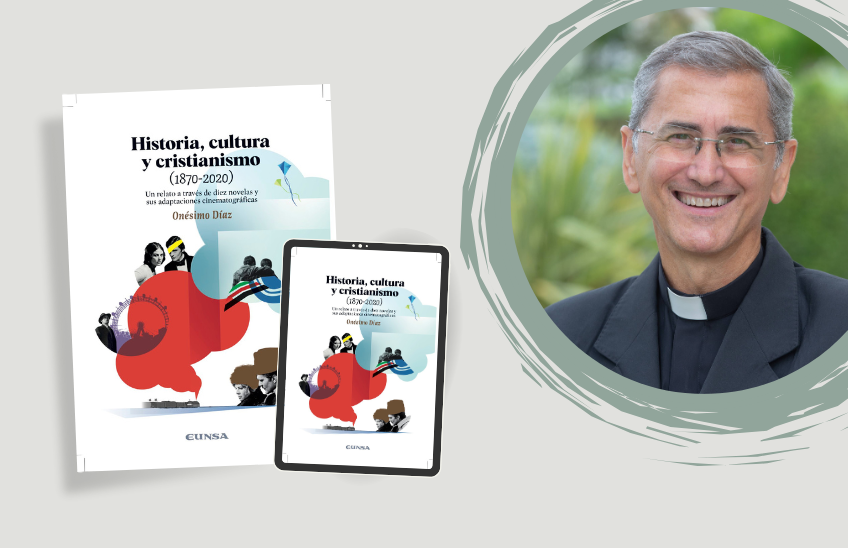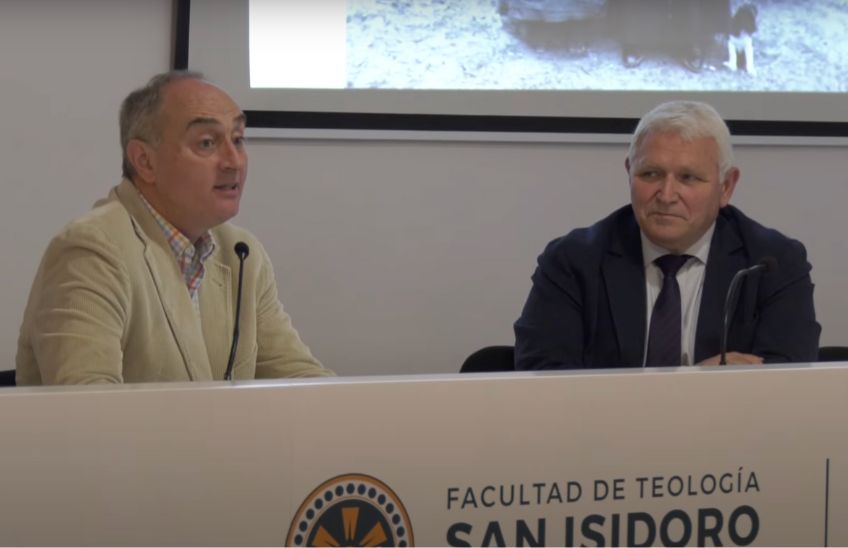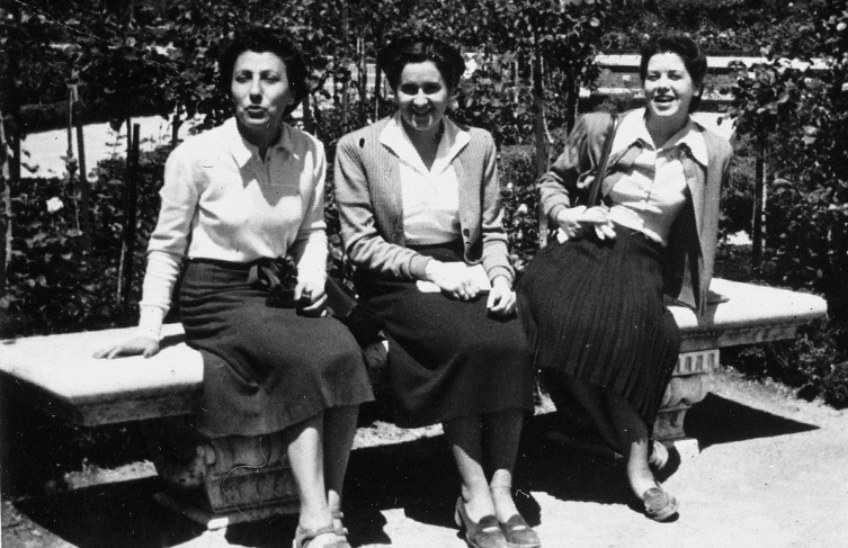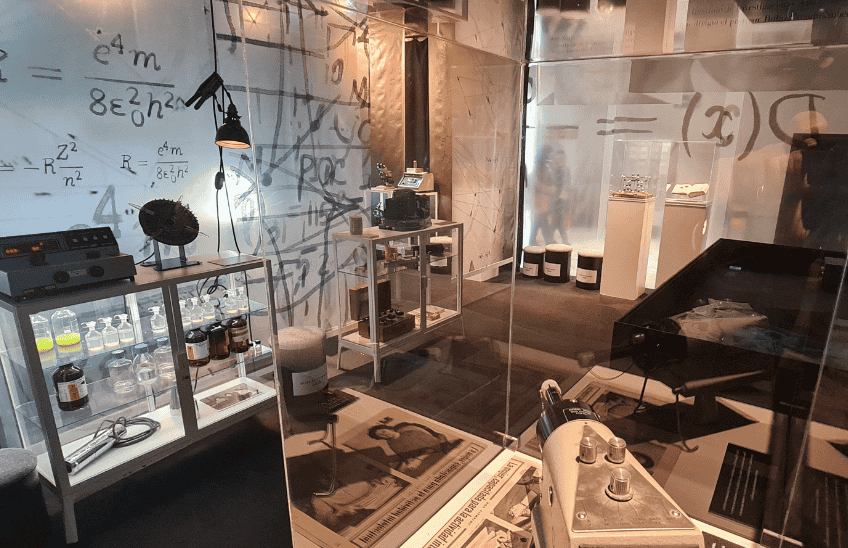2023-11-28 Constantino Ánchel: «El matrimonio de Eduardo Ortiz de Landázuri y Laura Busca no estuvo cerrado en sí mismo sino abierto a los demás»
Constantino Ánchel: "The marriage of Eduardo Ortiz de Landázuri and Laura Busca was not Closed in itself but open to others".
Constantino Ánchel, member of the Office for the Causes of Saints, explains in this interview some details of the life of the Ortiz de Landázuri couple. Since 2015 the Church unified their causes for canonization. Soon, their remains will be transferred to the Clinic of the University of Navarra.
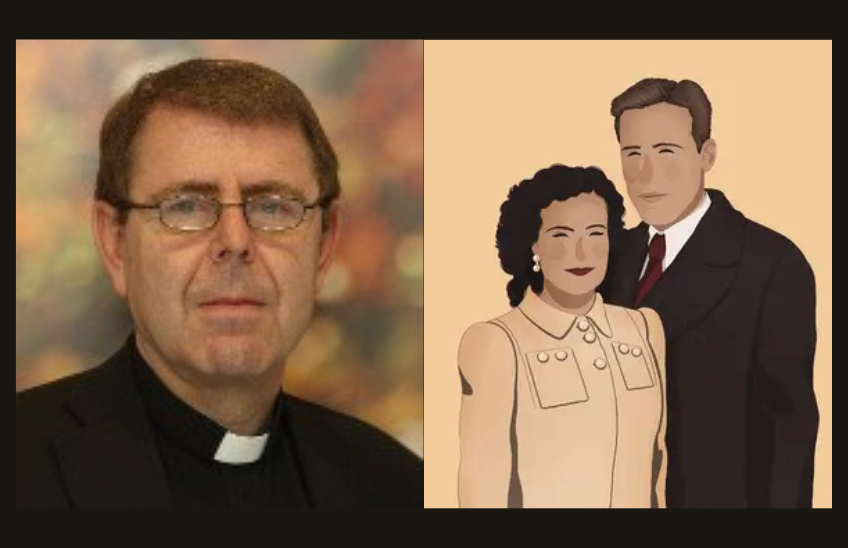
28 | 11 | 2023
The Ortiz de Landázuri couple is in the process of canonization and their remains will be transferred to the Clinic of the University of Navarra. Eduardo Ortiz de Landázuri (1910-1985) was one of the pioneers of School of Medicine and the Clinic. He, along with his wife, Laura Busca (1912-2000) settled in Pamplona in 1958, at the suggestion of the then Dean of the School of Medicine, Juan Jiménez Vargas, with the goal to promote the beginnings of the University.
Eduardo Ortiz de Landázuri was Dean of the School of Medicine for 16 years and Vice President of the University. He promoted the beginnings of the Clinic, where he practiced medicine as Full Professor of Clinical and Medical Pathology until his retirement. From then until his death in 1985, he was President of the association de Amigos. That same year, the University awarded him the Gold Medal.
Laura Busca holds a degree in Pharmacy from the Universidad Central de Madrid. In her youth she dedicated herself to research. She was very passionate about studying and reading.
Eduardo and Laura met in 1935, and a few years later, in 1941, they married and had 7 children. Since 2015 the Holy See has unified the cause of canonization of the couple.
Constantino Ánchel recounts in this interview some details of the couple's life. Ánchel was a member of the Office of the Causes of Saints of the Prelature of Opus Dei in Madrid and Rome. He also served as a historical expert for other causes of canonization. He was researcher and documentalist of the Center of programs of study Josemaría Escrivá.
How would you describe the Ortiz de Landázuri couple?
Externally they were just another married couple. They were Catholic, they got along well, there are no striking features until you begin to study the details of their lives.
They began their courtship shortly before the Spanish Civil War. At that time he was doing his internship at the Hospital del Rey (Madrid) and she was a pharmacist. Both had distanced themselves from the faith they had received from their respective families, although this does not mean that they were atheists. Eduardo Ortiz de Landázuri was a member of a socialist party and was anticlerical. However, according to the testimonies gathered from agreement , they showed human virtues such as love for work, honesty and loyalty.
Eduardo's father's imprisonment and death sentence led him to rethink certain things. The Christian example of how the condemned man coped with his last moments opened the way for both Eduardo and Laura to return to the faith.
During the war, Eduardo and Laura ended their engagement and she returned to Zumárraga, to her parents' home. After the end of the war, they resumed their engagement and, later, they started a family and had seven children.
They were parallel lives that converged into one. One of the things that stands out when reading the testimonies and knowing their story is that they were really in love, they had details and admired each other. They had a capacity for wonder and sought to understand and help each other.
The marriage of Eduardo and Laura was not Closed in itself but open to others. According to the testimonies gathered for their causes of canonization many make reference letter that the Ortíz de Landázuri home had its doors open to welcome everyone, whether it was a meal or a stay in their house in Pamplona.
How did you discover your vocation to Opus Dei?
Shortly after the end of the civil war, Eduardo's sister, Guadalupe Ortiz de Landázuri, got to know Opus Dei and asked for admission as a numerary. From that moment on, Eduardo and Laura's couple got to know the Work, although I don't know to what extent they had a relationship with some of the first members of the Work in the 1940s.
Later, when the family had settled in Granada, after Eduardo obtained a Chair and opened his private enquiry , he began to frequent an Opus Dei center there. In 1952 he asked for admission as a supernumerary, and shortly after, in 1953, his wife did the same as a supernumerary.
Did your membership in the Work impact your family dynamics in any way?
At a certain moment, Eduardo Ortiz was asked if he was interested in collaborating in the start-up of School of Medicine at the University of Navarra and the Clinic. This undoubtedly meant a professional sacrifice for him because he had practically degree program done, that is, he was on track, and it implied leaving a prestigious university to move to one that was taking its first steps. His teacher, Dr. Jiménez Díaz, encouraged him to live this new experience.
A few years later, the founder of Opus Dei visited the university and Ortiz de Landázuri told him: "Well, Father, you asked me to come to Pamplona to build a university, and it's already done...", but St. Josemaría replied: "I didn't ask you to build a university, but to become a saint by building a university, order " .
Undoubtedly, the move to Pamplona implied a sacrifice for the whole family, since it meant leaving their friends, their home and the stability they had achieved in Granada.
In what ways can Laura and Eduardo's life inspire other Christian couples?
If you look at the hectic life of the family, marked by the diary of the father who was a doctor committed to his patients, in addition to teaching, being Dean of the School of Medicine and President of the University of Navarra, you might think that it was easy to live in disorder.
However, one sees in the marriage an inner order that is the one that orders the exterior . They had a perfectly established scale of values. First the attention with God, then the family and, in third place, the work.
In all marriages there are problems and difficulties. Eduardo and Laura's was not Exempt of them, but they had a supernatural vision. For example, they had a hard time separating with their son Eduardo, who was their third son and had psychiatric problems, so at one point they saw that it was convenient to admit him to a psychiatric institution. It was very difficult for Laura because the doctors advised her not to visit him, not so much for her sake, but for his, because it could upset him. Eduardo visited him every weekend.
As I mentioned earlier, they were in tune with each other. They knew what interested the other and they were attentive to each other. She was attentive to him, to his work, to his patients; and he was attentive to her, to her health, which was always very delicate, to her rest, at final, to take care of her.

